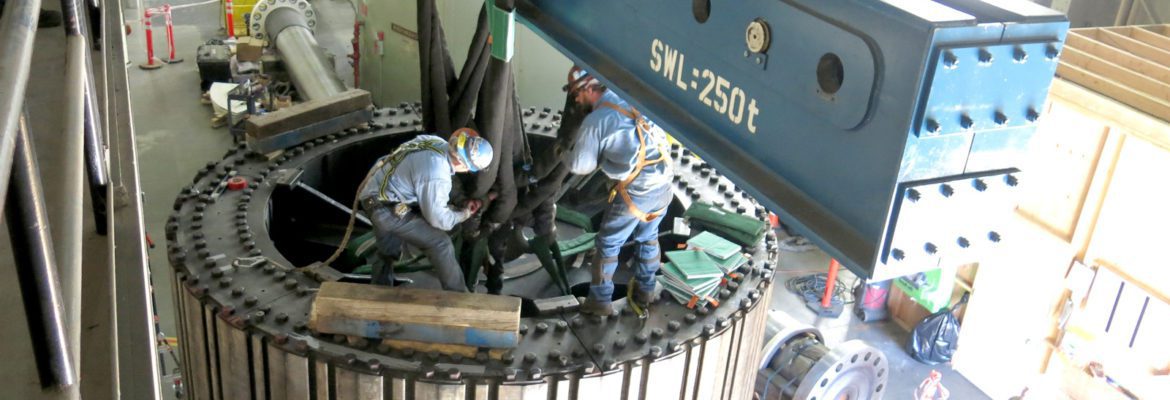The U.S. Army Corps of Engineers’ Walla Walla District announced it has awarded a US$321.3 million contract to Alstom Renewable US LLC to design, manufacture and install 14 turbines at the 980-MW McNary Dam hydroelectric project, located on Columbia River near Umatilla, Ore.
In a press release on March 21, the Corps said after the design is completed, the turbine components will be manufactured and then installed two units at a time over the course of seven to eight years. The contract is expected to be fully-completed in about 14 years.
“Alstom will work collaboratively with the Corps through an iterative design process to develop the new runners and associated equipment,” said Shawn Nelson, Corps project manager.
The award culminates three years of research, planning, design and acquisition to replace the existing turbine runners and associated ancillary equipment. The goals of this re-capitalization and modernization effort include increasing: fish survival, hydraulic capacity, turbine efficiency operational flexibility and improving turbine operations reliability.
In October 2015, HydroWorld.com reported the Corps was seeking information on firms able to design, supply and install new-design turbine runners and rewind generators at the McNary Dam hydroelectric project. Earlier that same year, the Corps sought bids to replace the 14-main turbine-generators, which at the time had been in operation for almost 60 years.
McNary Dam was commissioned in 1954 and the current units are projected to continue to operate on average for another seven years until the new turbines are manufactured and installed.
Funding is being provided by the Corps’ partner and stakeholder, Bonneville Power Administration (BPA).
The Corps said re-capitalization projects such as the McNary turbines are a capital investment for BPA, as they receive power sales revenue from the generation of power by the McNary hydropower facility. These revenues from McNary Dam annually range from $150 million to over $300 million depending upon rates and water flow. This equates to an annual average per unit revenue generation of just over $16 million.

